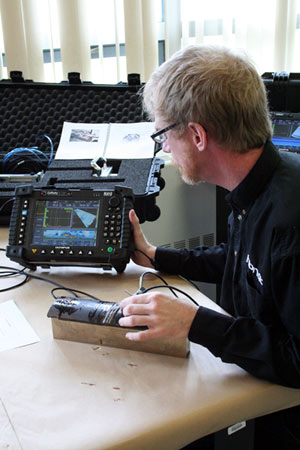
Non-Destructive Testing instructor, David Hermanutz, demonstrates the new ultrasonic phased array equipment located at the Port aux Basques campus. The system sends sound waves into metal objects, which are then reflected back displaying the defects and stresses in the metal.